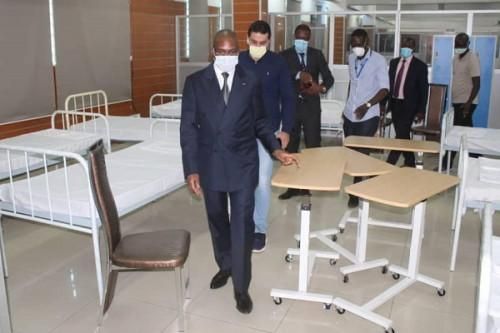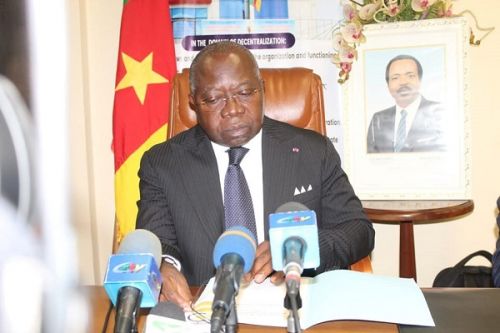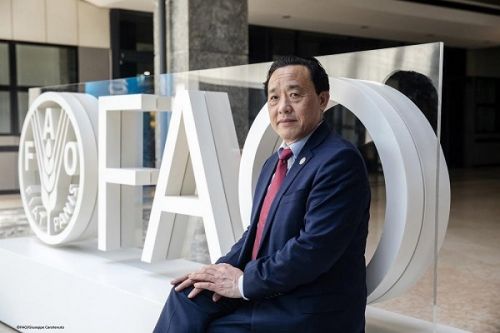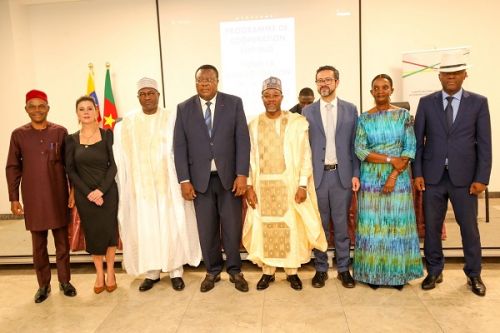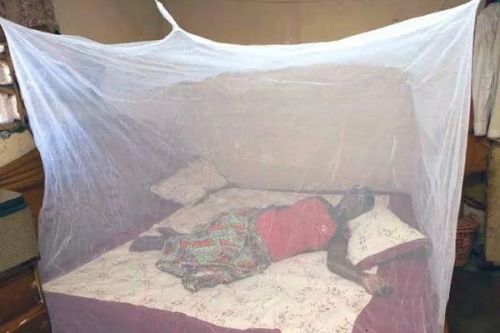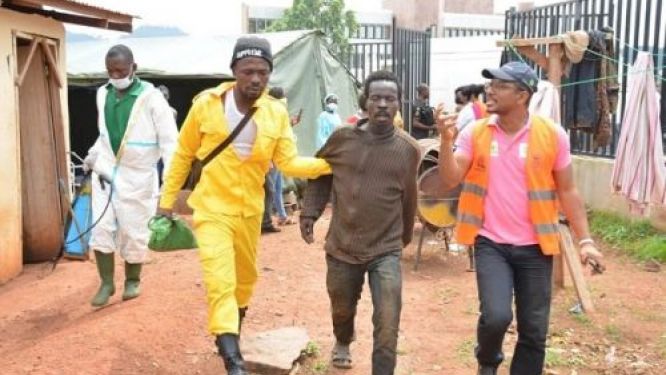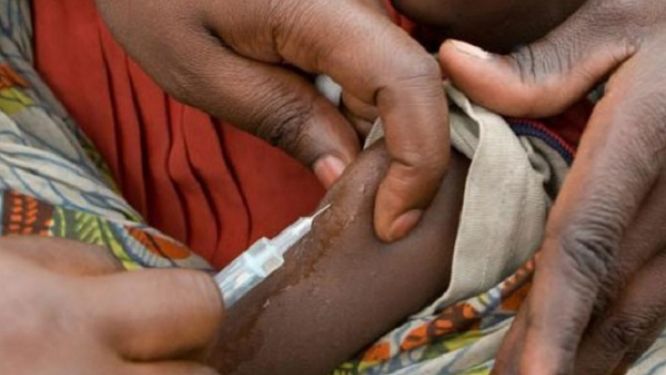On November 16, 2021, the audit report on the use of the coronavirus response fund was officially published. The report was “adopted (..) following the deliberation in chambers on Friday 04 June 2021, on the report of Mr. Théodore MBENOUN, Division President,” it reads. So it was already ready when its presentation before the parliament was unexpectedly canceled on June 25, 2021. The 171-page document confirms the malpractice accusations of a preliminary report that was leaked on social media in May 2021. It also adds accusations like favoritism, conflicts of interest, and several rule violations.
Test purchases overbilled in excess of XAF15.3 billion
“(...) the company in charge of importing 1,400,000 tests was inexperienced and over billed the sum of CFAF 15,374,000,000 in 2020, with the approval of MINSANTE [Ministry of Public Health] officials (...) The Audit Bench notes that these sums benefited the two entities, MEDILINE MEDICAL CAMEROON SA and the intermediary MODA HOLDING HONG KONG, which appear to be closely linked,” the report reveals. According to documents from the Bank of Central African States (Beac), MODA HOLDING HONG KONG, which is controlled by Cameroonian businessman Mohamadou Dabo, collected payments even though it was not the one to supply the tests.
The report points out that although he was not a signatory party for the signature of contracts for the acquisition of coronavirus scientists, given the amounts involved, there is no way the purchases would have been overbilled without the Minister of Public Health knowing about it.
Moreover, BEAC documents indicate that Minister Manaouda Malachie personally contacted the central bank at least once, in a bid to speed up fund transfer to Moda Holding Hong Kong for the supply of overpriced Covid-19 tests.
Drugs imported despite authorization to produce them locally
“In fact, the IMPM [Institute of Medical Research and Studies of Medicinal Plants ] was negotiating with an importer to buy hydroxychloroquine and azithromycin tablets from India several weeks before the decision of the Minister of State, Secretary General of the Presidency of the Republic, requesting MINSANTE to start manufacturing these drugs locally,” the report reads
To support its statement, the report cites a letter sent on March 19, 2020, by freight forwarder Incredible India Import & Export, to the Director-General of IMPM, Prof. Jean Louis Essame Oyono. The letter was reporting the delivery of hydroxychloroquine and azithromycin as well as inputs serving for the production of those drugs.
"Thanks to the personal intervention of Indian authorities and taking into account the strong bilateral ties of friendship between both countries, the Indian laboratories that manufacture the afore-mentioned products readily agreed to place Cameroon on their priority list of beneficiaries. We should therefore expect delivery of these products within a reasonable timeframe,” the said letter informed.
“On 29 July 2020, IMPM received a delivery of five million hydroxychloroquine tablets, five hundred thousand azithromycin tablets and azithromycin inputs (12 drums of 25 kg each) for CFAF 601,300,000 from DHL (...) While the order for hydroxychloroquine and azithromycin was for bulk tablets, the Audit Bench was able to establish that these medicines were delivered already packaged. IMMP decided to repackage these medicines in new packaging. This operation cost CFAF 9,356,000 corresponding to the production of 45,000 boxes of hydroxychloroquine and 5,000 boxes of azithromycin by "ETS PIERRE ET LES ANGES,” the report continued.
Covid screening tests sold by a Minister
“By transfer order No. 038/20/L/MINSANTE/COVID-19 of 11 May 2020, the authorizing officer of the BGFI MINSANTE-RIPOSTE COVID-19 account transferred the sum of CFAF 288,000,00037 to the Ministry of Territorial Administration on an ad hoc account, of which the identity of the holder is unknown to the Audit Bench, for the purchase of 15,000 COVID-19 rapid screening tests. The BGFI account was effectively debited with this sum on 14 May 2020. The Minister of Territorial Administration paid in this sum to the BGFI account of MINSANTE on the 2nd of June 2020 "on the instructions of the Prime Minister, Head of Government", according to Mr. EYENGA NDJOMO Elysée Amour II, COVID-19 focal point of MINSANTE and co-signatory of the BGFI account,” the audit bench wrote in the report.
For the auditors, although the sum was paid, it was not canceled in MINSANTE’s bank ledger. So, the audit bench concludes that “if the transfer is not recorded in the MINSANTE bank ledger, there is a risk that the sum of CFAF 288,000,000 will be appropriated by private individuals (…) In view of these findings, the Audit Bench notes the lack of transparency Entertained by the Minister of Territorial Administration [ Paul Atanga Nji] and the Minister of Public Health [Manaouda Malachie] in the management of this transaction, whereas there is a risk of misappropriation of this sum for private interests.”
CFAF536 million worth of drugs missing
“No information on the management of the stocks of these medicines was provided to the Audit Bench. These medicines were not taken over by the stores accountant and nobody at MINSANTE was able to say where they were stored. In addition, no information relating to the payments of these three contracts, for CFAF 536,443,636, is recorded neither in the accounts of the Specialized Paymaster at MINSANTE, nor in the statement of account of cash payments of MINSANTE for 2020,” the report explains before concluding that “In view of these elements, and in particular the inability of MINSANTE officials to identify the storage location, the Audit Bench considers it highly likely that either these medicines were diverted to private individuals or that they were delivered fictitiously.”
When special contracts favor rule violations
“In the absence of bookkeeping by the stores accountant, goods purchased are not identified in the accounts as part of the State's assets or its stocks, and can therefore be easily misappropriated. This was the situation in 2020 for many of the goods purchased through the procedure of the special contract. For example,” the Audit bench says.
It then provided an extensive list of the goods purchased but not recorded in the “accounts”. Those goods include the stocks of hydroxychloroquine, azithromycin, and inputs to manufacture azithromycin, purchased by the MINRESI costing the public treasury over CFAF600 million. There are also CFAF25.8 billion worth of screening tests, CFAF26.7 billion worth of proactive equipment as well as medical supplies received by the central administration (“25 special contracts, 18 special jobbing orders and 6 administrative purchase order forms that were the subject of reception reports,” ).
Opportunism and conflicts of interest in the contracts awarding process
Thanks to the Trade and Personal Property Credit Registration documents of some service providers, the audit bench found out that some companies were created or reactivated just for the coronavirus response plan. This is the case of Proof Consulting Group, Technologie Médicale du Cameroun and New Pharma Sarl.
35 to 40 days after their registration, those three companies won contracts in the response to Covid-19, for a cumulative amount of nearly CFAF700 million.
Also, there were conflicts of interest in the attribution of some contracts. “The Audit Bench established that three companies (ETS ABOA PERSPECTIVE, ETS ABS MOTORS and PHASE ENGENEEERING CAMEROON SA), which were awarded 6 contracts, for a total amount of CFAF 1,620,834,039, are managed by Mr. ABOUBAKAR SIDIKI DIABY, elder brother to Mr. OUSMANE DIABY, President of the working group set up by the Minister of Public Health to formulate a technical opinion on contracts awarded,” the report discloses.
CFAF1.2 billion of services fully paid for although not completed
“In total, the Audit Bench notes that Special Contracts No. 029, 035 and No. 022 were received and paid for between April and October 2020 for a total amount tax inclusive of CFAF 1,255,274,772, whereas the services were not completed as at 21 December 2020,” we learn.
The special contracts concerned include notably the construction of a health post at the Yaoundé-Nsimalen International Airport, the rehabilitation of the neurology wing of the Yaoundé Central Hospital (lot 2), and the rehabilitation/extension of the Lagarde wing of the Yaoundé Central Hospital (lot 1).
A problematic CFAF15 billion outstanding payment
“The Ministry of Finance disbursed CFAF 15,000,000,000 for the settlement of outstanding payments in accounting stations. It indicates that "these expenses benefited from budgetary support (COVID) to the tune of CFAF 15,000,000,000", that is to say funding from technical and financial partners (PTFs) The special nature of this operation does not seem to have been perceived by the accounting stations concerned. The public accountants interviewed by the Audit Bench considered that the resources allocated were intended for the ordinary payment of expenses in their constituencies, and not part of the government's logic of special measures to combat COVID 19 and its economic, social and financial consequences. The Audit Bench on its part was unable to identify a decrease in the stock of outstanding payments of accounting stations,” the audit bench writes.
Brice R. Mbodiam





